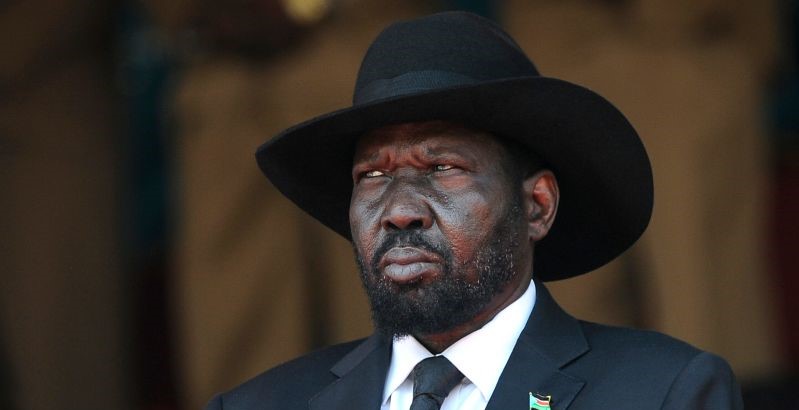For more than a decade, the South Sudan leaders have governed through decrees, verbal instructions, and recycled elites—leaving ministries without direction and citizens without hope. True change will only come when the system is reformed, not when yet another minister is hired or fired.
“I am still looking for the right person.”
These words, repeated endlessly by South Sudan’s president, have become the most familiar policy of our government. Ministers are appointed and dismissed at will, commissioners are shuffled without explanation, and governors are replaced like pieces in a board game.
Every evening, families gather around their televisions, waiting for the latest presidential decree. Names flash across the screen—another minister hired today, dismissed tomorrow, sometimes even reappointed the day after. Governance has been reduced to a spectacle, where decrees have more weight than policies and where leadership is measured in announcements, not results.
In healthy governments, ministers are given clear mandates, documented policies, and structured goals. They know how their performance will be judged, and how their actions serve the nation.
In South Sudan, ministers are handed little more than verbal instructions from the president. They are left to guess their duties, focusing only on loyalty instead of service. This system ensures ministries are weak, directionless, and fully dependent on the president. The citizens, in turn, are left without functioning institutions.
When ministers are dismissed, no explanations are given. No public investigations are conducted. The excuse is always the same: “I am still searching for the right person.”
Yet too often, the very same officials fired return quietly to power. This is not reform—it is recycling. It is a system designed to protect loyalty, not to deliver results.
Governance in South Sudan has become a nightmare, where decrees matter more than policies and citizens are left waiting for promises that never come. This cycle of decrees and verbal orders fuels corruption at every level.
The United Nations Independent Panel on South Sudan reported in 2025 that corruption is not only economic—it is a human rights crisis. Political elites have siphoned off billions through road projects that were never built. From 2021 to 2024, $1.7 billion in government payments went to companies linked to powerful elites. Another $2.2 billion disappeared into the “Oil for Roads” program. Meanwhile, three-quarters of child deaths are preventable, yet the Ministry of Health received just 19% of its promised budget while the Ministry of Presidential Affairs overspent by 584%.
In a country where hunger and disease kill daily, this is not mere mismanagement—it is betrayal. Other African countries, despite their challenges, offer a different picture.
- In Kenya, cabinet secretaries are vetted by parliament and held publicly accountable.
- In Ghana, ministers face open debates on their successes and failures.
- In South Africa, ministers reshuffled by the president face questioning, and even the president himself can be removed through a vote of no confidence.
- In Tanzania, ministers receive direct assignments with measurable results.
In South Sudan, hospitals run without medicine. Schools remain empty. Roads stay broken and unsafe. Children die daily of malnutrition and preventable diseases. Communities live in fear of “unknown gunmen” while their leaders shuffle names on television screens.
When officials know they may be removed at any time, they rush to “eat” what they can while in office. Institutions collapse, citizens lose trust, and the cycle continues.
If South Sudan is to move forward, the president must stop searching for the “right person” and start building the right system.
That system must include:
- Written mandates with clear goals and timelines.
- Parliamentary vetting of all ministers.
- Transparent performance reviews.
- Independent oversight institutions.
- A ban on recycling failed elites.
The African Union and the United Nations have already warned that South Sudan’s corruption and violence cannot continue. AU has called for accountability and national dialogue, while the UN has described corruption here as a human rights catastrophe.
Peace agreements on paper are meaningless unless the institutions that protect citizens are real, strong, and transparent.
Change will not come from outsiders alone. South Sudanese citizens must demand more. Poverty and manipulation have silenced too many, making decrees seem normal. However, silence only strengthens the system.
We must understand: the problem is not that the president cannot find the “right person.” The problem is that the system itself is broken. South Sudan does not need another decree. It needs real governance—transparent, accountable, and institutional.
Until then, citizens will continue to sit by their televisions, waiting for the next announcement, while their lives slip further into poverty, hunger, and despair.
The time has come to stop searching for the right person. It is now the time to build the right system.
The writer, Clara Auling, is a South Sudanese political activist. She can be reached via email: cauling16@gmail.com
The views expressed in ‘opinion’ articles published by Radio Tamazuj are solely those of the writer. The veracity of any claims made is the responsibility of the author, not Radio Tamazuj.




